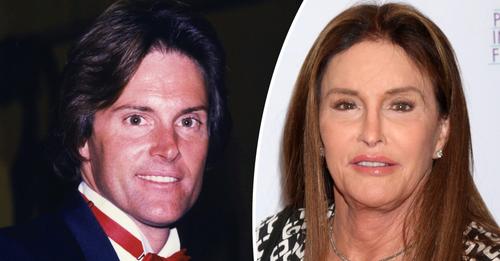Caitlyn Jenner became one of the most prominent athletes in the 1970s. She won a gold medal and set a new world record at the 1976 Olympics in Montreal, and after her career was over, jobs in the entertainment business followed.
But as of today, Caitlyn has been in the spotlight for coming out as transgender and taking hormone treatments for a gender transition. Her decision was courageous, and as of today, Jenner has turned into a role model for many.
But at the same time the former world-class athlete still feels that the “old Bruce” still lives inside of her. This is all you need to know about Caitlyn Jenner!
Caitlyn Jenner was born William Bruce Jenner on October 28, 1949, in Mount Kisco, New York. As a youngster, she struggled with dyslexia, but even though it was tough, athletics was a savior for her. Throughout her childhood, Caitlyn found great success in sports, as she turned out to be a huge talent in many sports.
Caitlyn Jenner – early life
During her high school days, Jenner excelled in football, basketball, and water skiing. But it was track and field that would become her true passion.
From the beginning, however, Caitlyn received a football scholarship from Graceland College in Iowa. But once there, a knee injury took her off the field, and instead, she switched to track and field.
As mentioned, Caitlyn was a very gifted athlete, being named the Most Valuable Player of her high school basketball team, football team, and track team. But at the same time, already at that point in her life, she struggled with gender identity.
“I look at guys and I go…’ He’s comfortable in his own skin,’” Jenner recalled. “And I thought, ‘Wouldn’t that be a nice way to go through life?’ I look at women all the time thinking, ‘Oh my God, how lucky are they that they can wake up in the morning and be themselves. But me, I’m stuck here in the middle.”
Caitlyn Jenner’s track coach in college, L.D Weldon, convinced her to start training for the Olympic decathlon – a combined event in athletics consisting of ten track and field events. The coach was an expert in the very demanding track event, and he saw Jenner as the perfect person for it.
In 1971, Caitlyn came out of nowhere and won the Kansas Relays. A year later, she made the US Olympic team, finishing 10th in the Olympic decathlon in Munich.
Olympic superstar
That was a considerable achievement, but Jenner knew she could do even better. So she began an intense training regime, practicing eight hours a day – every day – for the next four years.
Once it was time for the Olympic Games in Montreal, Canada, in 1976, Jenner was ready.
On July 30, 1976, at the age of 26, she won the Olympic decathlon and set a new world record with 8,618 points.
As the US was in a very rough period – regarding the aftershock of Vietnam, Watergate, and several other big problems – Jenner’s Olympic gold was an important thing. They was treated like a bigger-than-life American superhero and became a symbol as at the time they were masculine with long lionlike flowing hair.
She was hailed as the most outstanding athlete in the world. But at the time, even though they became a symbol of masculinity, they felt like a woman when they received the gold medal.
“I see a confused person at that time, running away from my life … with big-time fear,” Caitlyn told ABC. “[I was] scared to death. I didn’t realize what my future held at that time.”
“That is me. That is her,” she added, referring to her gender identity. “[you can be a woman] and still kick butt.”
“I was totally empty inside”
Because of the massive victory in the Olympics, Caitlyn Jenner didn’t only become an American hero. It also meant fame was inevitable, and once she got back to the States, everyone wanted a piece of her.
Jenner got plenty of endorsement deals, becoming a sort of a national brand. Further, she appeared in ads and television shows – and even movies.
However, behind the brand that at the time was Bruce Jenner, she was a different person.
In 1977, Jenner got picked in the seventh round of the National Basketball Association draft by the Kansas City Kings. But as she stood on stage, taking in the fame, chants, and applause, nothing of that really mattered.
“I walk off the stage, and I’d feel like a liar. And I would say, ‘F*ck, I can’t tell my story,” she recalled. “There’s so much more to me than those 48 hours in the stadium, and I can’t talk about it.’ It was frustrating. You get mad at yourself…. Little did they know I was totally empty inside. Totally empty inside.”





